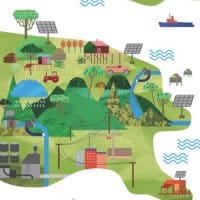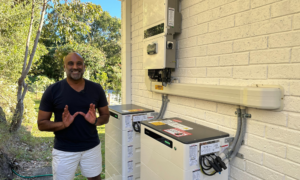A new report from ANZ encourages Papua New Guinea to ditch diesel power generation in favour of cheaper energy technologies such as solar PV, micro-hydro and biomass.
Currently, PNG’s energy mix is primarily oil (49%), biomass (39%), hydropower and geothermal (10%) and gas (2%).
” Powering PNG Into The Asian Century”, prepared for ANZ by Port Jackson Partners, looks at new directions for electricity supply for the country based on its aspirations to provide electricity access to more of its citizens.
Papua New Guinea has set its sights on providing 70% of its population of 8 million access to electricity by 2030; up from around 8% currently. Supply will need to triple by 2030, or 7.2 per cent per year, in order to achieve the goal.
“This report is designed to support to a national conversation about that challenge,” says ANZ Chief Executive Officer Papua New Guinea, Mark Baker. “It also forms a practical contribution, comparing different development scenarios against the new technologies and outlining options for the reform of the electricity sector.”
The report says shifting away from a reliance on diesel electricity generation and embracing clean power opportunities will save US$5 billion and halve emissions between 2015 and 2030.
Solar power systems really come into their own in off-grid scenarios and these locations are where the majority of PNG’s population lives.
The report states diesel as being 50 per cent more expensive than a solar + energy storage setup in village settings – and with more than two thirds of new demand likely to be outside the nation’s current or future electricity grid, solar will play a big role in PNG’s energy future.
Done right, the rewards for Papua New Guinea are substantial as all industry is supported by electricity, and cheaper electricity means PNG businesses can be more competitive.
“Economic development moves in lock-step with increased power supply. Social development relies on access to clean, affordable and reliable energy,” states the report.
However, the road ahead may not be a smooth one. ANZ says rapid and significant institutional and organisational changes will be needed to deliver these savings and the participation of the private sector will be key.
















































